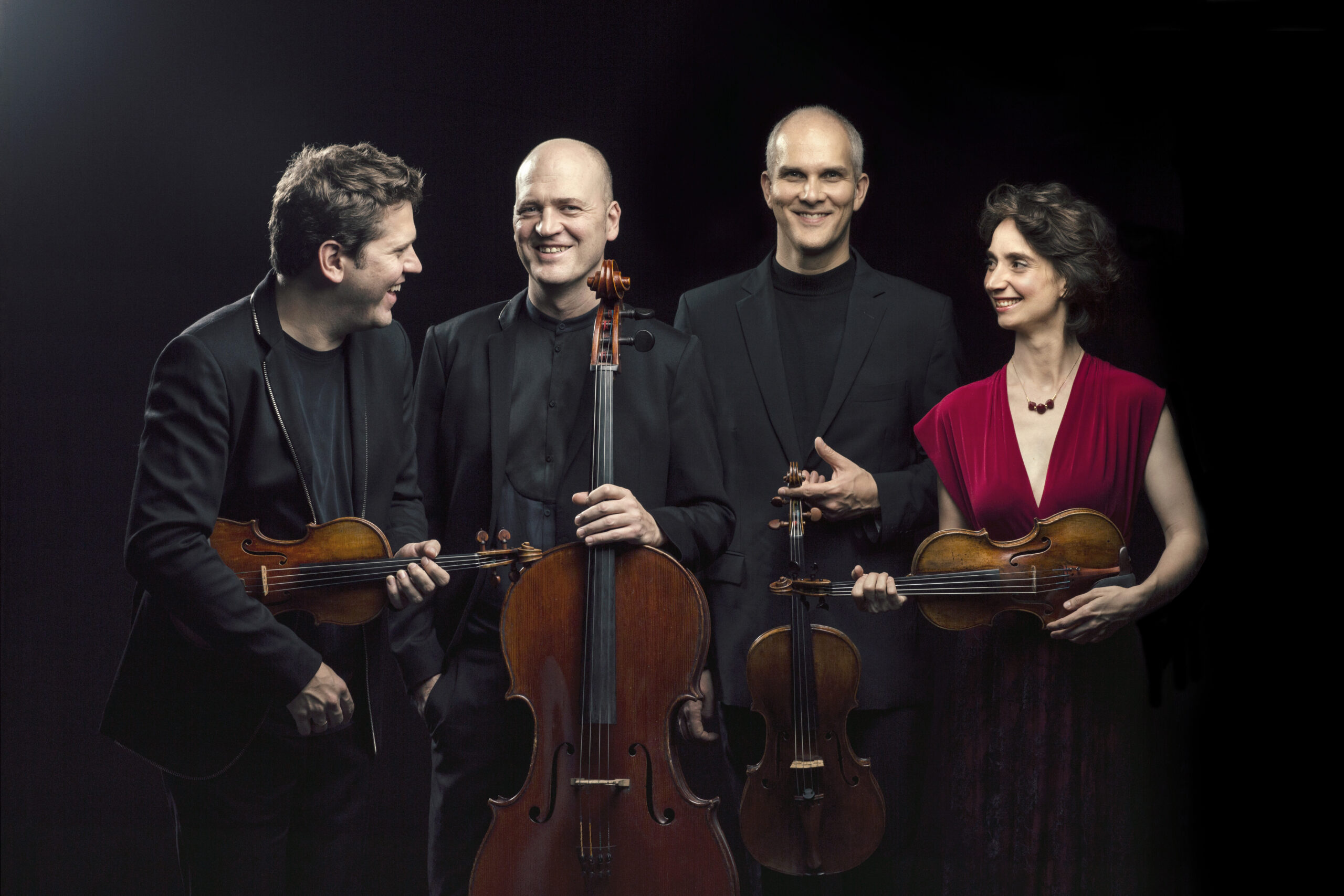Repertoire
MOZART I
26 May 2020
MOZART: String Quartet No. 14 in G major, Spring, K. 387; String Quartet No. 15 in D minor, K. 421 (417b); String Quartet No. 16 in E Flat major, K. 428 (421b)
MOZART II
27 May 2020
MOZART: String Quartet No. 17 in B Flat major, The Hunt, K. 458; String Quartet No. 18 in A mayor, K. 464; String Quartet No. 19 in C major, Dissonance, K. 465
MOZART III
28 May 2020
MOZART: String Quartet No. 20 in D major, Hoffmeister, K. 499; Prussian Quartets: String Quartet No. 21 in D major, K. 575; String Quartet No. 22 in B Flat major, K. 589; String Quartet No. 23 in F major, K. 590
Artists
Vera Martínez, violin
Abel Tomàs, violin
Jonathan Brown, viola
Arnau Tomàs, cello
Program
This year again, L’Auditori’s Chamber Music season has the pleasure of having the Quartet Casals on its programme. This is one of the most important string quartets of the moment and is a regular at L’Auditori.This year, the Quartet Casals offers three programmes in which they explore, in chronological order, the last great quartets by Wolfgang Amadeus Mozart, written during the final nine years of the composer’s life. Quartets No. 14, 15 and 16 form part of the six quartets that Mozart dedicated to his admired friend Joseph Haydn, considered to be the father of this genre.
Written between 1782 and 1785 under the strong influence that Haydn’s Quartets op. 33 had on Mozart, these works show a composer with absolute mastery of the compositional language and a willingness to explore the complexity of writing for string quartet.
Quartet No. 14, K. 387 shows Mozart’s ability to achieve maximum clarity of language through complex instrumental writing. Quartet No. 15, K. 421, the only one of the six quartets written in minor key, exhaustively explores the use of the same material throughout the four movements of the work. And Quartet No. 16, K. 428, one of the most complete of the entire cycle, delights us with its unexpected harmonic turns.
Quartets 17, 18 and 19 conclude the cycle of six quartets that Mozart dedicated to his admired friend Franz Joseph Haydn, considered the father of this genre. Written between 1782 and 1785 under the strong influence that Haydn’s quartets op. 33 had on Mozart, these three quartets won over Haydn himself when he heard them, who then wrote to Leopold Mozart stating that his son “is the best composer I know. He has good taste and, most importantly, a profound knowledge of composition.”
Quartet No. 17, K. 458 received the nickname of The Hunt because of its beginning, which evokes the fresh air, the sounds of hunting horns and an optimism and lightness that transports us to the most tender innocence. Quartet No. 18, K. 464, which Beethoven considered to be his finest, is one of the most complete quartets in the entire series. It combines the variety of elements in its first two movements with an economy of resources in the next two movements. Quartet No. 19, K. 465, nicknamed Dissonance on account of its unsettling, tense introduction, gives way to a great thematic, harmonic and textural development in its four movements.
In their final programme, the Quartet Casals will perform three of Mozart’s last four quartets. In Quartet No. 20, K. 499 Mozart shows all his inventiveness in a work of great emotional depth that shifts between tragedy and comedy. The quartet includes a minuet, considered by some commentators as one of the most original compositions of the 18th century. Quartets 21 and 23 are two of the three “Prussian” quartets that Mozart dedicated to King Frederick William II so that he could play them on the cello. This explains the prevalence of cello parts in these works. Quartet No. 21, K. 575 is interesting because of its subtle and reserved character and its diaphanous texture. With Quartet No. 23, K. 590 Mozart achieves a fine balance between the need to create concerted passages for the cello and the desire to maintain a solid chamber music language.

